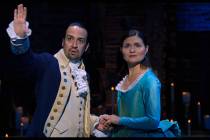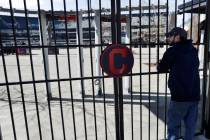Steve Wolfson says critics wrong about ‘Las Vegas Law’
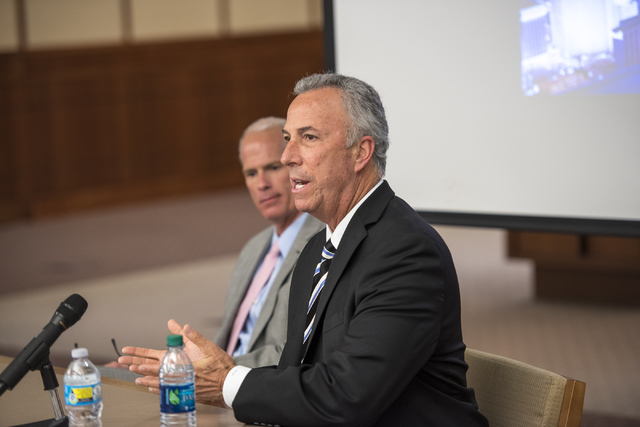
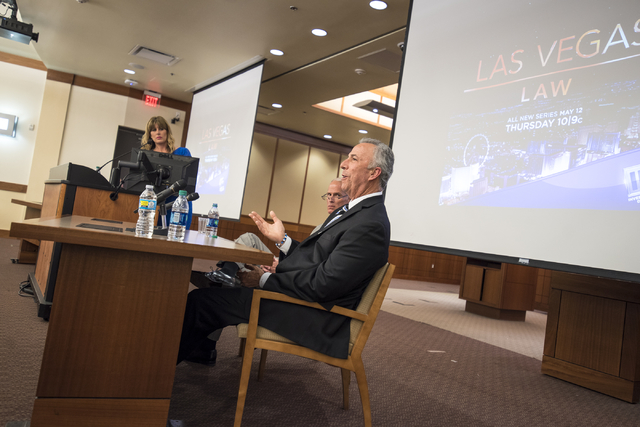
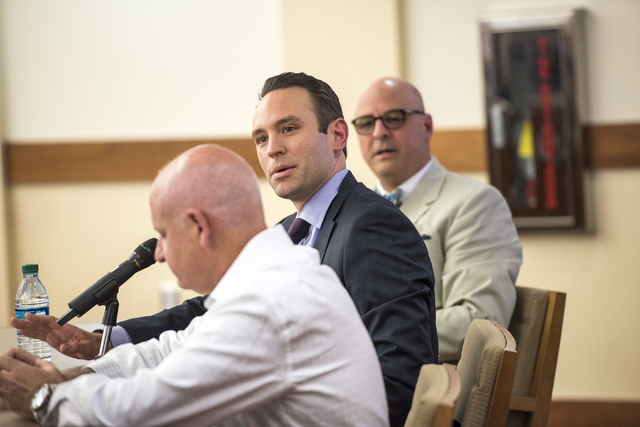
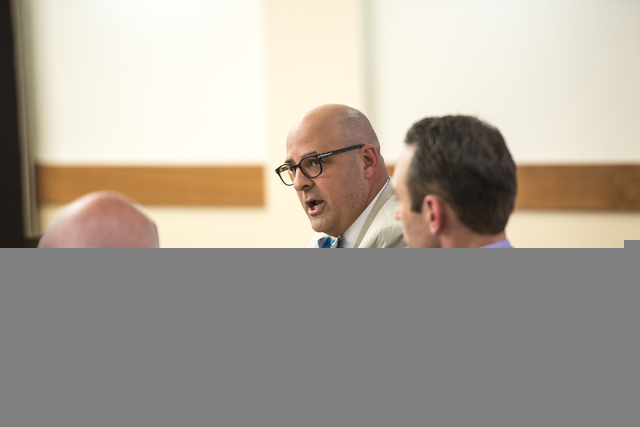
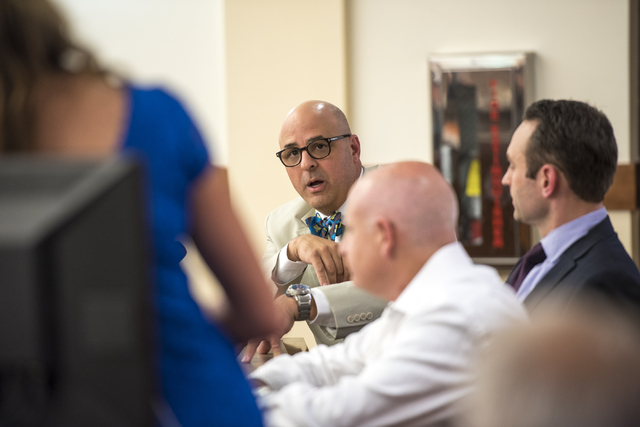
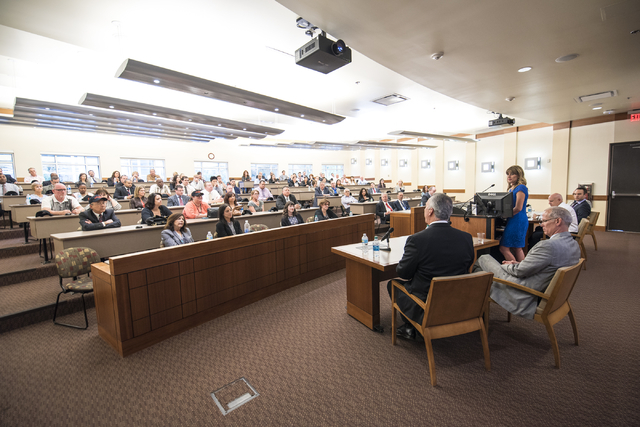
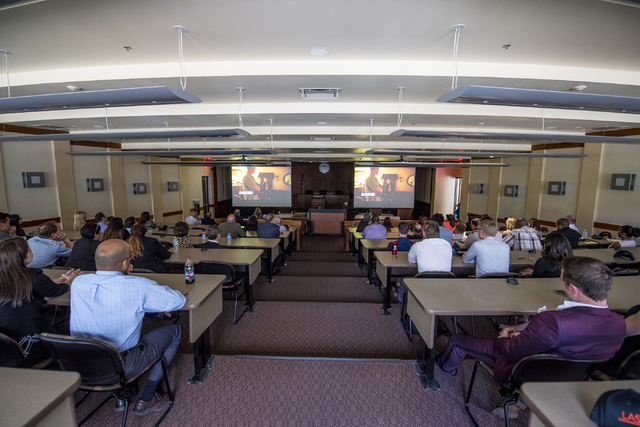
“Las Vegas Law” isn’t the first reality series to look at crime in the valley. “Cops,” “America’s Most Wanted” and “Jail: Las Vegas” have been doing that for years.
It isn’t even the first one named “Las Vegas Law.” The original, launched in 2006 on what was then Court TV, followed the flashy exploits of the late defense attorney James “Bucky” Buchanan.
But what this “Las Vegas Law” (10 p.m. Thursday, Investigation Discovery) offers that those other projects didn’t is access to the inner workings of the Clark County District Attorney’s Office.
“I’m very fortunate,” District Attorney Steve Wolfson says. “I lead a team of very, very remarkable lawyers in my criminal division. They’re great trial lawyers that do great work. And I think what motivated me (to participate) was to have a forum to tell the Las Vegas community in particular, and the world, the great work that the lawyers here in the office do.”
“Las Vegas Law” wasn’t Wolfson’s idea. In fact, it took him several years to agree to be involved. But he’s already seeing unintended benefits of his cooperation.
Once filming wrapped a couple of weeks ago, Wolfson sat down with about 15 of the attorneys in his office to talk about their experiences with the series. “Many of the lawyers said the same thing, which was how therapeutic it was — and that’s the word the lawyers used in my office — how therapeutic it was for so many of these victims to be able to get their stories out.”
In Thursday’s premiere, those victims include two women who say they were sexually assaulted by massage therapist James Brian Goins. They agreed to take part in “Las Vegas Law” because they wanted their stories known, says showrunner Greg Klein, who spent more than 20 years producing “America’s Most Wanted.” At the last moment, he says, the women decided they were uncomfortable being identified, so their faces were blurred out.
“I’m incredibly sensitive, having done literally hundreds of these types of stories over the years with victims,” Klein says. “And I never want to feel like we’re intrusive and making people do something they don’t want.”
When the victims were no longer around to share their stories, the “Las Vegas Law” team turned to family members, who supply the most emotional moments in the premiere.
In February 2013, Ammar Harris shot and killed Kenneth Cherry Jr. on the Strip, causing Cherry’s Maserati to slam into a taxi. The resulting explosion killed the taxi’s driver, Michael Boldon, and his passenger, Sandra Sutton-Wasmund of suburban Seattle.
Heidi Cherry begins weeping when she and her husband, Kenneth Cherry Sr., visit the intersection next to Bally’s where their son died. Boldon’s brother and sister, Tehran and Gigi, discuss the death penalty, which Tehran desperately wants for Harris. “I wanna be there with flags and wavin’ pompoms: ‘Kill his a—. Kill his a—,’ ” Tehran proclaims before sobbing and wailing.
“(When) editors who are working for us are crying in the edit room,” Klein says, “you know that you’ve done your job in a way that hopefully will touch an audience out there and make people realize just who the victims and their families are.”
Wolfson is very aware that, with “Las Vegas Law,” he’s opening himself and his office to scrutiny. He also freely admits to having been concerned about the potential for political fallout. “Of course I was. Of course I was. I’m not insensitive to how there are a lot of naysayers out there. There are a lot of people that are going to criticize a project like this.”
The producers of “Las Vegas Law” were held to the same standards as any other media outlet looking to cover court proceedings, Wolfson says. “One of the rules I required the producers to follow was to file that same media request, which they did in every single case. And every judge had the discretion to grant or deny the media request. To my knowledge, they were never denied access.”
Responding to early criticism of the series — public defender Phil Kohn told the Review-Journal last month that he thinks prosecutors pushed cases to trial so camera crews could capture more footage — Wolfson stands by his attorneys.
“I always told the lawyers in my office that the integrity of the office and the integrity of the case is first and foremost,” he says. “And nothing should be decided based on the fact … that a television crew was following the story.”
“There were many occasions when the film crew was ready to film a trial,” Wolfson adds, “and on the morning of trial, the defendant entered into a negotiation and pled guilty. And the camera crew was left with nothing for the week. And that’s because the prosecutors did their job. They didn’t take cases to trial just for the benefit of the project.”
Wolfson says, ultimately, it was a meeting with executive producer Michael Yudin, who partnered with Henderson’s Wayne Allyn Root in creating the series, that convinced him “Las Vegas Law” was a worthy venture.
“He said things, like, ‘You guys do really important work.’ And I believed him when he said that. So it gave me a level of confidence that it was going to be a project that I could be proud of, notwithstanding the fact that there are going to be people that are going to criticize the idea of doing this and criticize me personally.
“But at the end of the day, I’m very proud of this project. And I’m very proud of what this television show says — not just about the DA’s office — but (about) our judges, our defense lawyers, our police officers and our community.”
Contact Christopher Lawrence at clawrence@reviewjournal.com. On Twitter: @life_onthecouch.




